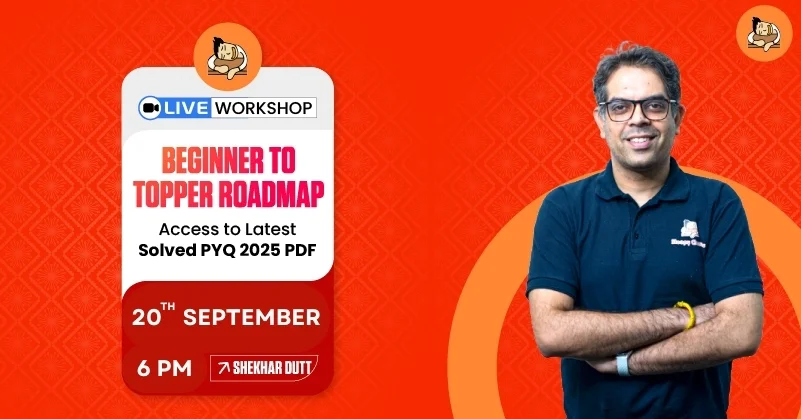Preparing for the UPSC exam is a big decision that can change your life. This exam is tough and needs a lot of hard work, but it also offers many rewards. Let’s explore why you should consider preparing for the UPSC.
Key Takeaways
- UPSC preparation offers job security and a stable career.
- Clearing UPSC brings prestige and respect in society.
- It opens doors to diverse career opportunities.
- You get the power to make a real difference in society.
- The financial stability that comes with UPSC jobs is significant.
1. Job Security
One of the main reasons to prepare for the UPSC exam is the job security it offers. Once you pass the exam and become a civil servant, you have a stable and secure job. This is unlike many private sector jobs where job security can be uncertain. Even if you don’t clear the final interview stage, there are still opportunities available. For example, candidates who reach the final stage but don’t make it to the merit list can be recruited for top posts in Public Sector Units (PSUs). This means that the effort you put into preparing for the UPSC exam is never wasted.
2. Prestige and Respect
Preparing for the UPSC exam brings a high level of prestige and respect. Clearing the exam is seen as a significant achievement in India. People who pass the UPSC exam are often admired and looked up to in society. This respect is not just from friends and family but also from the community at large. Becoming an administrator means you are trusted with important responsibilities, which further boosts your standing. The journey to becoming an officer also builds confidence, which commands even more respect.
3. Diverse Career Opportunities
Preparing for the UPSC exam opens up a world of diverse career opportunities. Even if you don’t clear the exam, the knowledge and skills you gain can lead to many other rewarding paths. For instance, you can apply for other government jobs like Combined Graduate Level (CGL) conducted by Staff Selection Commission (SSC) or as a Probationary Officer (PO) in the banking sector. Teaching at universities is another viable career option. With a strong foundation in various subjects, former UPSC aspirants can excel in academic roles.
4. Power to Make a Difference
One of the most compelling reasons to prepare for the UPSC exam is the power to make a difference. As a civil servant, you have the unique opportunity to influence policies and implement changes that can improve the lives of millions. This role allows you to address social issues, promote development, and ensure justice in society.
- Influence Policies: Civil servants play a crucial role in shaping and implementing government policies. Your decisions can have a lasting impact on the nation.
- Promote Development: By working on various development projects, you can contribute to the economic and social growth of the country.
- Ensure Justice: As a part of the administrative system, you can help in maintaining law and order, ensuring that justice is served.
Preparing for the UPSC exam is not just about securing a job; it’s about gaining the ability to bring about positive change in society. This is why many choose to embark on this challenging yet rewarding journey.
5. Financial Stability
Preparing for the UPSC exam can lead to a career that offers financial stability. Government jobs, especially those secured through UPSC, come with a steady income and various allowances. This ensures that you and your family have a reliable financial foundation.
Moreover, the salary structure for UPSC jobs is quite attractive. Here’s a simple breakdown:
| Position | Basic Pay (per month) |
|---|---|
| IAS Officer | ₹56,100 – ₹2,50,000 |
| IPS Officer | ₹56,100 – ₹2,25,000 |
| IFS Officer | ₹56,100 – ₹2,25,000 |
In addition to the basic pay, there are other benefits like housing, medical facilities, and travel allowances. These perks make the overall compensation package very appealing.
With a UPSC job, you can be assured of a secure and comfortable lifestyle, free from financial worries.
For those interested in a career in economics, finance, or banking regulation, the RBI Grade B exam is another option to consider. This exam also offers a stable and rewarding career path.
6. Personal Growth
Preparing for the UPSC exam is not just about studying; it’s about developing your personality. During their preparation, candidates work on developing their personality, which boosts their overall confidence and poise. This journey helps in building self-discipline, time management, and resilience. These skills are valuable in all walks of life.
7. Intellectual Challenge
Preparing for the UPSC exam is not just about memorizing facts; it’s about engaging in a deep intellectual journey. Cracking the civil services exam is undoubtedly challenging, but it doesn’t necessarily require someone to be highly meritorious or super intelligent. The process involves understanding and analyzing issues from multiple dimensions, which enhances your ability to think critically.
The knowledge gained during this preparation sets you apart from the crowd and allows you to absorb information in a unique way.
The UPSC syllabus covers a wide range of subjects, including history, politics, economics, and geography. This broad spectrum ensures that candidates develop a well-rounded understanding of various fields. The continuous cycle of reading and writing helps in building patience and dedication, which are crucial for personal growth.
Moreover, the intellectual challenge of UPSC preparation fosters a mindset of lifelong learning. Even if you don’t achieve your goal, the skills and knowledge acquired are invaluable and can be applied in various aspects of life.
8. Social Impact
Preparing for the UPSC exam can have a significant social impact. As a civil servant, you have the power to shape policies and make decisions that affect millions of people. Your role can bring about positive changes in areas like education, healthcare, and infrastructure.
- Community Development: Civil servants often work on projects that improve local communities. This can include building schools, hospitals, and roads.
- Public Welfare: You can help implement programs that provide essential services to the underprivileged, such as food distribution and healthcare initiatives.
- Environmental Protection: Many civil servants are involved in efforts to combat climate change and protect natural resources.
By preparing for the UPSC, you are not just aiming for a job; you are preparing to make a difference in society. This is a unique opportunity to contribute to the greater good and leave a lasting impact.
Moreover, the preparation process itself involves understanding various social issues, which broadens your perspective and makes you more empathetic towards different sections of society. This holistic understanding is crucial for effective governance and policy-making.
9. Comprehensive Knowledge
Preparing for the UPSC exam requires a broad understanding of many subjects. This includes history, politics, economics, geography, and more. This knowledge helps candidates stand out from the crowd. They learn to see issues from different angles and develop a deep understanding of various topics.
- History: Learn about India’s past and world history.
- Politics: Understand the political systems and governance.
- Economics: Get insights into economic principles and policies.
- Geography: Study the physical and social geography of India and the world.
The journey of nonstop reading and writing during UPSC preparation helps in developing essential skills such as analytical thinking, staying updated with current affairs, and effective time management. This not only boosts intellectual capacity but also enhances personal growth.
10. Leadership Skills
Preparing for the UPSC exam helps you develop strong leadership skills. Leadership is crucial for a successful career in civil services. You learn to make decisions, manage teams, and handle responsibilities effectively.
- Decision-Making: You will learn to make quick and effective decisions, which is essential for any leader.
- Team Management: Managing a team is a key part of civil services. You will gain experience in leading and coordinating with others.
- Responsibility Handling: Handling various responsibilities during preparation builds your confidence and ability to manage tasks efficiently.
Developing leadership skills during UPSC preparation not only helps in your career but also in personal growth. It teaches you to stay motivated and focused on your goals, even when facing challenges.
In summary, the UPSC journey equips you with the skills needed to become a competent and confident leader.
Great leaders aren’t born; they are made through learning and experience. If you’re looking to develop your leadership skills, our comprehensive courses can help you get there. From interactive classes to personalized mentorship, we offer everything you need to succeed. Visit our website to explore our offerings and start your journey today.
Conclusion
Preparing for the UPSC exam is a journey that goes beyond just studying. It shapes your character, enhances your knowledge, and prepares you for a career dedicated to public service. The reasons to consider this path are numerous, from the opportunity to make a real difference in society to the personal growth you will experience. Whether it’s the job security, the prestige, or the chance to contribute to the nation, the UPSC exam offers a unique and rewarding challenge. So, if you are ready to commit to this path, start your preparation with determination and a clear goal in mind. The journey may be tough, but the rewards are worth it.
Frequently Asked Questions
What is the UPSC exam?
The UPSC exam is a highly competitive test in India that selects candidates for various civil services, including IAS, IPS, and IFS.
How long does it take to prepare for the UPSC exam?
It usually takes 1-2 years of dedicated study to prepare for the UPSC exam. However, the time may vary depending on individual circumstances.
What subjects are covered in the UPSC exam?
The UPSC exam covers a wide range of subjects, including history, geography, polity, economy, environment, and current affairs.
Is coaching necessary for UPSC preparation?
Coaching is not mandatory but can be helpful. Many candidates clear the exam through self-study, while others benefit from structured coaching programs.
What is the age limit for the UPSC exam?
The age limit for the UPSC exam is generally between 21 and 32 years, but there are relaxations for certain categories.
How many attempts are allowed for the UPSC exam?
General category candidates can attempt the UPSC exam 6 times, while there are additional attempts for OBC, SC, and ST categories.
What is the selection process for the UPSC exam?
The selection process includes three stages: Preliminary Exam, Main Exam, and Interview.
How can I stay motivated during UPSC preparation?
Staying motivated can be challenging. Setting small goals, taking breaks, and seeking support from family and friends can help keep you focused.





